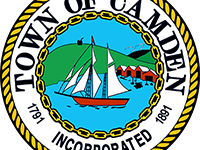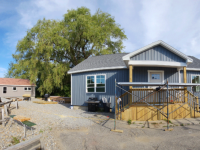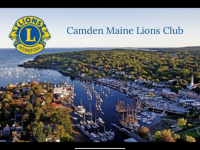Developing floating offshore wind can help protect Maine's seafaring culture, marine environment
The January 11 op-ed published here by Jack Merrill of the Maine Lobstermen's Association was critical of offshore wind in Maine. As environmental, clean energy, and community advocates, we are responding with some additional perspective.
In November, Gov. Mills proposed the selection of a yet-to-be-determined 16-square mile area located some 20 to 40 miles off the coast to test and research floating offshore wind technology. Developed in close coordination with Maine's fishing industry and other critical stakeholders to study potential economic and environmental impacts, the goal of the research turbines is to help Mainers understand how we could benefit from the ample wind resources offshore.
As part of that effort, Gov. Mills also recently proposed a 10-year moratorium on any new wind development in state waters up to three miles off the coast, keeping the focus on projects in federal waters, a ways from Maine’s coast.
As Mainers supportive of further research on the potential economic and environmental benefits of offshore wind, as well as supporters of a vibrant and long-lasting fishing and lobstering industry in Maine, we are responding to Mr. Merrill's assertions with additional facts. Our response is focused on the two main pillars of Mr. Merrill's opposition: the potential environmental impacts of floating offshore wind development and the potential cultural and economic benefits.
Climate change is the most serious threat to Maine’s economy and environment and harnessing offshore wind is critical to addressing it and protecting our state for generations to come. By harnessing the wind power from a very small fraction of the Gulf of Maine, we can power Maine’s economy and enable the clean electrification of heating and transportation.
There will be some environmental impacts from floating offshore wind arrays, but they will pale in comparison to the impacts of climate change, and by studying the potential impacts of offshore wind we can avoid, minimize and mitigate them.
The Gulf of Maine is warming faster than 99% of the world's oceans. If we don't do something to combat warming waters, the environmental conditions in the Gulf of Maine will never be the same. The current fish and other species in the Gulf of Maine are present in large part because of the temperature of the water. As it warms, species that rely on colder water will be forced to move out, and those tolerant of warmer water will inevitably move in.
Since the 1980s, warming waters in the Gulf have actually improved conditions for Maine's lobsters, helping make the fishery one of the most valuable in the nation. But as temperatures rise it will become simply too warm for lobsters to survive. The Gulf of Maine Research Institute predicts a 62% drop in the Gulf's lobster population by 2050. Temperatures are also expected to become less suitable for other Maine fishery species, including cod, flounder and pollock, as well as shrimp, clams, oysters, and scallops. The impacts of these shifts on Maine's lobstering and fishing workforce may be seismic.
Maine's famous Atlantic Puffins, the only breeding colonies in the lower 48, may have to move further north to follow the fish they feed on.
Traditionally southern species like Black Sea Bass and Red Hake will likely take advantage of the warmer water and move in, permanently changing the species mix. We must address the challenge of warming waters by taking action on climate change if we want to protect Maine's fishing and tourism industries. Thousands of people come to Maine in the spring and early summer to see puffins nesting on islands off the coast. Pelagic bird watching is certainly a unique and notable aspect of Maine's economy.
As with most human activities, floating offshore wind will undoubtedly have environmental impacts and we need to study those impacts to better understand how to avoid or minimize them. Millions of birds migrate over the Gulf of Maine, and many more patrol the offshore waters looking for food.
How can we best site and operate turbines to avoid impacts to birds?
How can we control ship traffic associated with offshore wind to avoid vessel strikes with marine life?
How can we better understand and mitigate impacts to the benthic environment?
These questions and many more can only be answered with data and experience - data and experience that can be provided by building a small number of turbines for research purposes, as proposed by the Mills Administration.
Floating offshore wind has the potential to provide reliable, Gulf of Maine-based jobs for years to come.
There is no greater threat to Maine's lobster industry and lobstermen than climate change, even with rapid shifts to renewable energy, it may be too late to stop the changing Gulf of Maine. We’ll need both wind and solar to turn the tide on climate change – these resources complement each other, and we cannot mitigate climate change with just one or the other.
Farming the winds of the Gulf of Maine is a way to protect the hard-working culture of coastal Maine and to ensure that there is reliable and good-paying work to be had off our coast and in our coastal communities. Offshore wind may sound like a new story in our state's history, but it may actually be an opportunity to continue the hard-working culture that Maine is famous for.
The time is now for clean, renewable energy, and solar alone will not meet our demands or stop the climate from changing. Developing floating offshore wind in Maine can help protect both Maine's seafaring culture and our marine environment.
Respectfully,
Acadia Center
Environment Maine
Ironworkers Local #7
Maine Audubon
Maine Conservation Voters
Natural Resources Council of Maine
New England for Offshore Wind
Sierra Club Maine
Event Date
Address
United States























